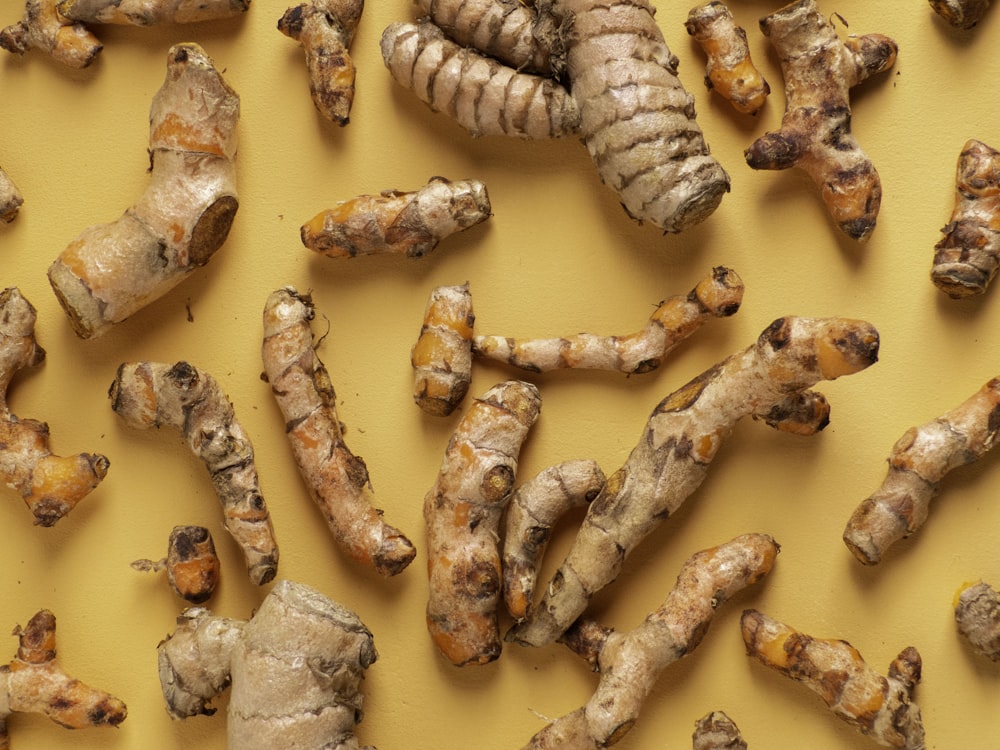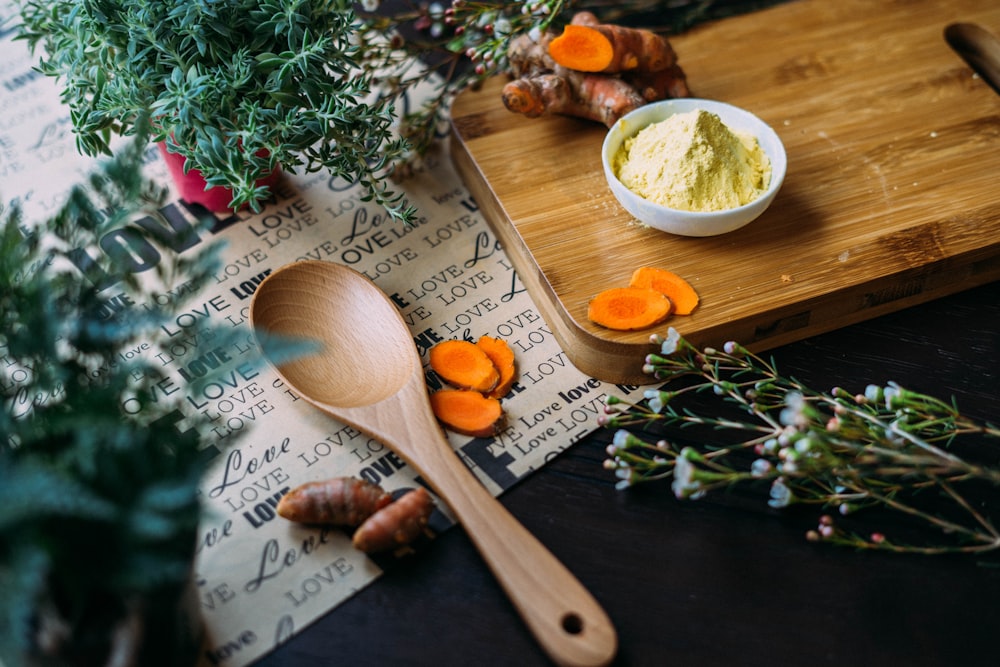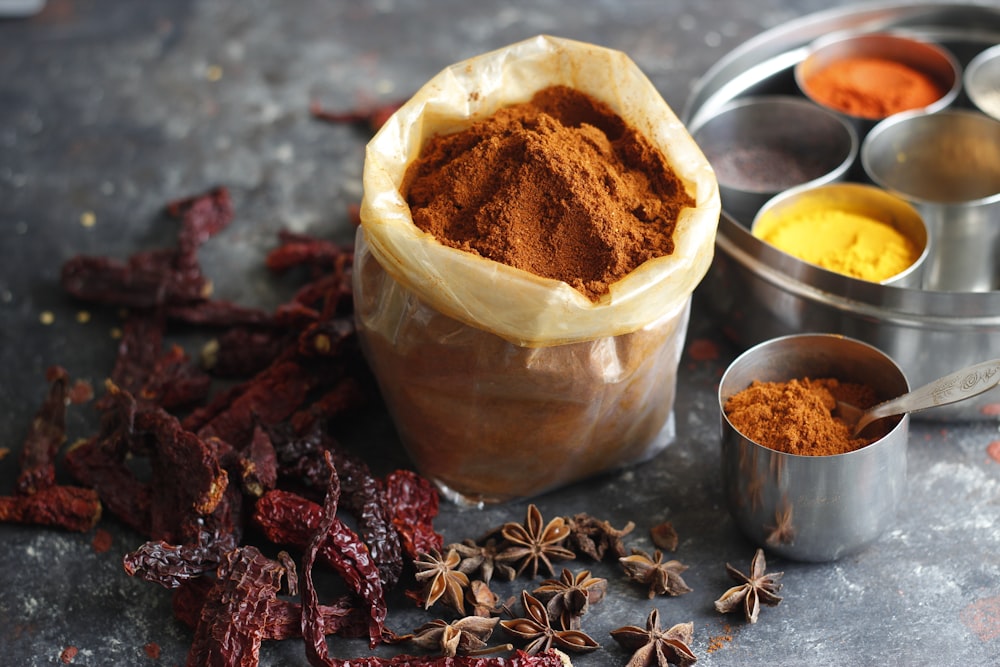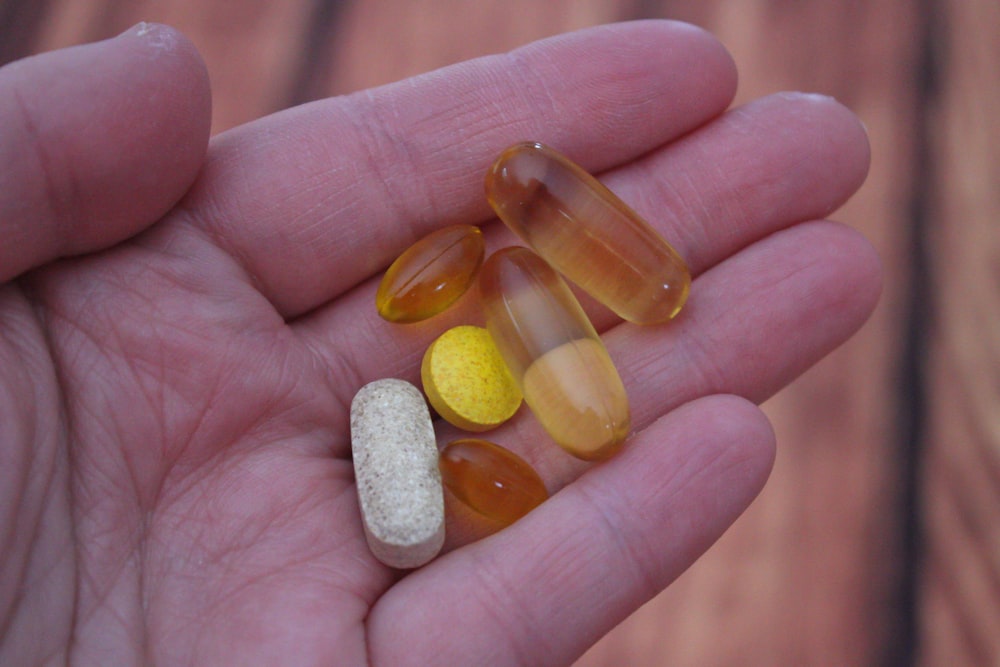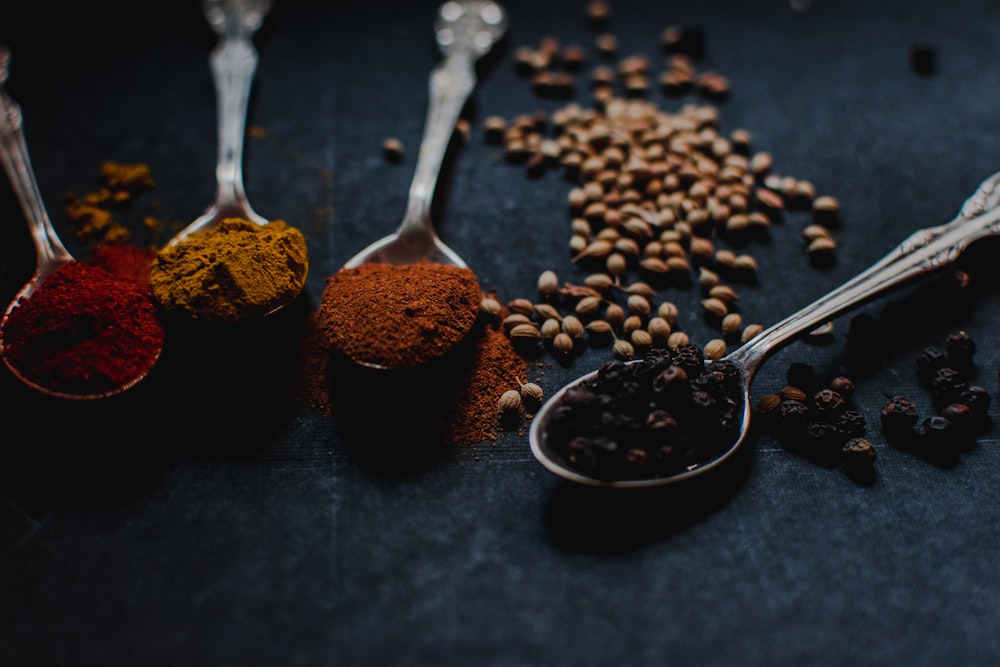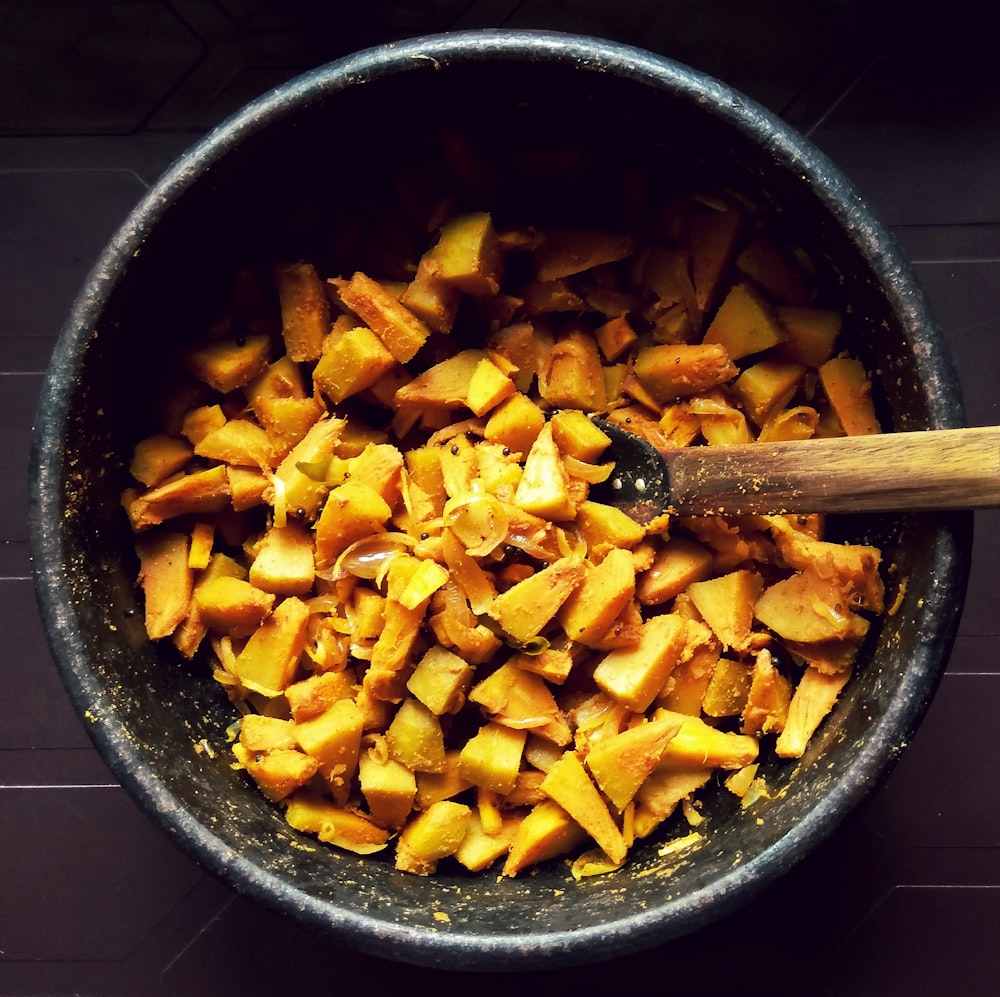Turmeric Pros and Cons

You probably have heard about turmeric for health and pain management by now. If you have been in a health and fitness class, browsing the internet, or reading various magazines on cooking, there is a good chance that you might have seen the word "turmeric" or "curcumin" mentioned at least once. In fact, several websites have promoted turmeric extract or turmeric curcumin complex for its many uses.
Turmeric Pros and Cons
If it is your first time hearing about this amazing natural spice, you can read Turmeric: 7 Surprising Health Benefits. But here, we will do more than reviewing the advantages of taking turmeric extract, curcumin powder, or curcumin capsules. Instead, we will try to discuss everything you need to know about them, the good, the bad, and all the turmeric pros and cons.
What is Turmeric?
Turmeric, commonly known as "the golden spice" or "the Indian saffron," as some people call them, is a globally accepted staple spice that you can find in most Asian food. It is the primary ingredient for cooking dishes such as chicken curry, noodle bowls with ginger, and a lot more. (Believe me, these foods are more than healthy but delicious as well!)
But, aside from being a popular culinary item, turmeric has been around for a long time, providing many benefits in the cosmetics industry, pharmaceutical industry, in religious ceremonies, as well as in the pain management or health and wellness industry.
Turmeric has graced and benefited not just the Asian community, but various cultures all over the world with its distinctive flavour, gorgeous yellow colouring, and a pleasant aroma.
Turmeric: An Essential Item of Ayurvedic Medicine
Turmeric, a perennial rhizomatous herb that belongs to the ginger family termed as Zingiberaceae, has been revered as a very essential medicinal item of Ayurvedic medicine for more than thousands of years... making turmeric one of the oldest natural medicinal ingredients in human history.
A native plant of tropical South Asia, turmeric is available in a natural state as an extract, a powder, or a plain root (turmeric root). A freshly picked turmeric looks like ginger, but brighter and yellower (sometimes its colour looks more of a yellow-orange shade). It's also strong smelling and resembles a mineral pigment when powdered or grounded.
Curcumin vs turmeric
When we talk about turmeric, it is almost impossible not to discuss curcumin too. Why? Because curcumin is the chemical compound that you can find in the turmeric root. This name, curcumin, is probably even one of the reasons why turmeric has been scientifically named as Curcuma longa.
Turmeric and curcumin preparations
Powdered turmeric spice is more commonly used in India, while South Asian countries often use raw turmeric root. After the root has been harvested, cleaned and cured, it will then be dried before being sold in the market as fine or ground powder.
Other than curcumin, some people also call turmeric as yellow ginger, Indian saffron, Kacha Haldi, or yellow root.
Turmeric Pros and Cons
Because turmeric is so highly touted in the western marketplace for pain relief, people tend to take tons of turmeric without knowing both the advantages and disadvantages. As turmeric's hit the mainstream, it is good to know the turmeric pros and cons. So here are what you should know about turmeric or curcumin.
Turmeric Pros:
- It can be used from its natural roots for several health and fitness benefits.
- Turmeric preparations or parts sold in the market are reasonably priced and affordable.
- Turmeric has natural anti-inflammatory agents.
- It can boost immunity.
- Turmeric aids the liver's ability to detoxify.
- It supports the gastrointestinal/digestive system.
- The antioxidants curcumin have may help in reducing the risk of cancer.
- Turmeric may support and improve brain function.
- Curcumin can effectively aid in decreasing the symptoms of muscle soreness post-workout.
- Besides having anti-inflammatory agents, turmeric also contains antibacterial, anti-viral, and antiseptic properties.
- It has profound and proven healing benefits for the body.
Turmeric Cons:
- May prevent the proper absorption of iron in some individuals.
- It can increase the risk of bleeding, particularly in person with slow blood clotting mechanisms and those who are in surgery or post-surgery.
- May cause male fertility problems secondary to reduced sperm movement (if taken as an oral supplement) and lower testosterone levels.
- When taken, it can interfere with some laboratory tests because it has high fluorescent and absorptive properties.
- May worsen certain health conditions such as Gastroesophageal Reflux Disease (GERD) and gallbladder problems.
- It can decrease blood sugar levels for people with diabetes.
- Further research and evidence may be needed to support all of its purported health benefits.
- It may take a long time before seeing significant effects.
Turmeric Pros and Cons: An In-Depth Look
We already had a quick look at the turmeric pros and cons above. Now, let us take a look at them one by one.
TURMERIC PROS:
Let's start with the benefits turmeric can offer. So here they are:
It can be used from its natural roots for several health and fitness benefits.
Turmeric, especially its most active naturally-occurring compound, curcumin, has many scientifically-proven health and fitness benefits. People have used turmeric for pain and for many other reasons.
Turmeric preparations or parts sold in the market are reasonably priced and affordable.
Different forms of turmeric preparations are available. You can use a fresh turmeric root and peel it, chop it, or grate it. Some preparations include turmeric in a powder form, paste, stick, liquid, curcumin capsules, and so on.
Turmeric has natural anti-inflammatory agents.
Compounds naturally found in turmeric, such as curcumin, work alongside nutrients we get from food, like different types of vitamins and minerals in fighting against inflammation. Researchers found in a 2006 study that turmeric's active ingredient, otherwise known as curcumin, is effective in preventing the development of joint inflammation.
In fact, it has been deemed by many professionals as safe and equally as effective as a nonsteroidal anti-inflammatory drug (NSAIDs) for the treatment of degenerative joint disease (osteoarthritis of the knee). This means that curcumin can be as potent as nonsteroidal anti-inflammatories you can buy from drugstores.
However, curcumin and NSAIDs work differently. NSAIDs do their job by reducing the release of substances that induce inflammation in the body. On the other hand, curcumin works against dozens of inflammatory mediators, which means that curcumin may be attacking more substances in the body that cause inflammation or pain.
So, if you have osteoarthritis, bursitis, inflamed ankles due to sprain, or other inflammatory conditions, turmeric/curcumin might be able to help you more than you know!
It can boost immunity.
Our immune system is on a daily battle against many diseases and infections. Pathogens are just all around us, and if our bodies detect a foreign body or unknown object, irregular cells, and chemicals, the immune system will trigger a protective cascade response called inflammation. While it may sound like not a good thing to some individuals, inflammation is actually the body's natural response to defend itself. It helps us to thwart any harmful substances and fight off any potential threat to the body.
In this respect, curcumin can be of great benefit for our immune system because, in appropriate doses, it can enhance our body's antibody response, giving the immune system a boost.
According to one study, "Spicing up of the immune system by curcumin," researchers revealed that curcumin could be a potent agent for the immune system that can regulate the activation of our white blood cells, namely dendritic cells, macrophages, natural killer cells, neutrophils, and T & B cells, which all help to fight infection. Furthermore, it has been found that curcumin can also protect the body against oxidative stress, which is the imbalance between antioxidants and free radicals, possibly causing certain diseases.
Turmeric aids the liver's ability to detoxify.
Turmeric and curcumin have shown proof that they can reduce the amount of crucial pro-inflammatory molecules in the body, which can contribute to the development, initiation, or worsening of certain diseases, including liver disease.
However, if you already have liver issues, we recommend that your doctor knows about your plan of taking turmeric supplements and is on board with the decision before really taking one.
It supports the gastrointestinal/digestive system.
Turmeric has many beneficial effects on many components of the digestive tract. For one, its active ingredient, curcumin, promotes healthy digestion by relaxing the GIT gastrointestinal tract walls and gently pushing down the food to pass through the intestines. It can also prevent potential digestive system health problems by:
- Encouraging the glands found in the surface of the GIT lining to heal quickly when a leaky gut or a harmful bacteria is present.
- Facilitating the balance between all the microorganisms in the gut and immune response.
- Stimulating the flow of bile (which aids the digestion of lipids) into the gastrointestinal tract.
- Promoting the secretion of protective stomach mucus, a primary defence against gastric acid.
These benefits we can get from curcumin ultimately leads to:
- a reduction of the prevalence of IBS or Irritable Bowel Syndrome.
- an improvement in the uncomfortable signs and symptoms of IBS (like bloating or nausea).
- prevention of bloating.
- healthy digestion
In short, we can say that turmeric is beneficial for the many components of the gastrointestinal/digestive system.
The antioxidants curcumin have may help in reducing the risk of cancer.
There are many research and case studies about cancer, a hyperproliferative disorder usually treated by chemotherapeutic agents. These agents used in chemotherapy are not only toxic to the tumour cells, but also to the healthy, normal cells.One particular research conducted in 2009 showed that curcumin could help in preventing the growth of metastatic or cancerous cells. Curcumin does this by halting the growth of blood vessels supplying nutrients to the malignant tumours. If these blood vessels in cancerous tumours are somehow blocked, the source of nutrients keeping the malignant cells will be cut off, thereby stopping the cell growth and the spread of cancer.
Turmeric may support and improve brain function.
In recent studies, researchers learned that curcumin could increase the levels of BDNF in the body. BDNF, short for Brain-Derived Neurotrophic Factor, is one of the primary hormones that work in the nervous system. It contains proteins with a role to differentiate, grow, and support existing neurons of the nervous system.
Neurons are responsible for the communication between our nervous system and the environment we live in. It sends and receives sensory input from the outside world, allowing us to interact and react with the environment.
As a matter of fact, many disorders of the nervous system like depression and Alzheimer's have been linked to reduced levels of BDNF. Since curcumin can increase BDNF levels, this means that it may be effective in reducing the risk of brain-related diseases due to low BDNF.

Researchers also found out that curcumin has antidepressant-like effects and that it could improve cognition as well as healthy memory.
However, even if these effects of curcumin sound promising, we still need future controlled studies involving trials on people to verify and confirm the results of this researches.
Curcumin can effectively aid in decreasing the symptoms of muscle soreness post-workout.
Anyone who started exercising in the gym or doing vigorous training after long periods of rest has probably felt post-workout muscle soreness. This is true, particularly for individuals working on specific muscle groups. Symptoms such as stiffness and pain, all manifestations of delayed onset muscle soreness (DOMS), can be experienced for a couple of hours to several days. Typically, DOMS happens when the contracting muscles become stressed, triggering an inflammatory response, which results in a sustained muscle soreness.
And while there are several treatment strategies and therapies that are useful to alleviate the sign and symptoms of DOMS experienced by novice athletes, recent studies show that the analgesic effect of medications such as nonsteroidal drugs (NSAIDs) and exercise may also be temporary.
Interestingly, researchers of the European Journal of Applied Physiology (EJAP) discovered in a study that turmeric/curcumin could effectively decrease the symptoms of muscle soreness post-workout.
The method was as follows:
- The researchers in the said study set up a randomized controlled trial in seventeen men.
- These men were given either a placebo or oral curcumin supplementation two times daily for up to three days.
- Then, these participants were asked to perform a single-leg press exercise to induce muscle soreness.
- After that, they have been evaluated. The evaluation was based on post-workout leg pain, single jump height, and muscle swelling. Furthermore, serum markers were also assessed to determine the extent of muscle damage and inflammation.
After the tests, the researchers found out and concluded that the participants of the trial who took curcumin supplementation experienced less DOMS-related symptoms. Also, the diagnostic blood test showed that there is a decreased serum marker for inflammation and muscle damage, which proves that curcumin from turmeric root could offer an effective way to prevent the effects and symptoms of DOMS.
It has also been said that curcumin can help improve performance, training endurance, and injury prevention.
Besides having anti-inflammatory agents, turmeric also contains antibacterial, anti-viral, and antiseptic properties.
Besides reducing inflammation, curcumin has shown to have anti-viral properties, possibly inhibiting the replication of certain types of viruses such as hepatitis B, dengue virus, and Zika virus. Several investigations have also revealed that curcumin has extensive antimicrobial, antibacterial, and antifungal properties.
Among several studies on the antibacterial properties of curcumin, the most promising result was against the most popular bacteria called Helicobacter pylori, a helically-shaped bacterium usually found in the stomach.
It has profound and proven healing benefits for the body.
A growing body of evidence from scientific research and case studies indicate that the medicinal and herbal properties of the turmeric plant, the source of curcumin, are highly effective.
TURMERIC CONS:
Now, the following section is also important. Not only for curcumin, but there are always pros and cons to everything. So, before taking turmeric for liver improvement or curcumin extract for pain relief, get to know the disadvantages and contraindications to turmeric or curcumin.
May prevent the proper absorption of iron in some individuals.

Studies say that turmeric is among the herbs and spices that can bind to iron. This means that it may reduce iron's bioavailability — which should be of concern to people who have low iron stores, Iron Deficiency Anemia (IDA), or are anemic.
It can increase the risk of bleeding, particularly in person with slow blood clotting mechanisms and those who are in surgery or post-surgery.
Several medications, herbs, spices, vitamins, and dietary supplements may increase the risk of bleeding in people with slow blood clotting mechanisms and those who are in surgery or post-surgery. Unfortunately, turmeric has been known to strengthen the effects of blood-thinning medications, subsequently raising the risk of bleeding.
May cause male fertility problems secondary to reduced sperm movement (if taken as an oral supplement) and lower testosterone levels.

The University of Michigan, Health Library published in an article and mentioned that turmeric, taken orally, may cause a reduction in testosterone levels as well as sperm motility in men. Since sperm motility and adequate testosterone levels could affect fertility, taking turmeric by mouth may have an indirect effect on men's ability to have children.
When taken, it can interfere with some laboratory tests because it has high fluorescent and absorptive properties.

Many people argue that turmeric's curcumin colour—bright orange, is among the many problematic properties of the said spice. Chemists and laboratory specialists say that its bright colour potentially causes false positives in certain tests such as drug screening, which measures fluorescence.
May worsen certain health conditions such as Gastroesophageal Reflux Disease (GERD) and gallbladder problems.

Although turmeric can probably ease some stomach conditions, some people say that when taken in high doses, it may cause nausea, stomach upset, and aggravate GERD or chronic acid reflux. It may be true, but there's still a lack of research focusing primarily on these issues. Also, some evidence of these proposed side effects of curcumin on the gastrointestinal tract is conflicting, as some studies say that the anti-inflammatory properties of curcumin have a positive impact on the stomach by lowering acid and pepsin production.
It can decrease blood sugar levels for people with diabetes.
In many of the studies about curcumin and diabetes, it has been proven that curcumin can effectively reduce blood sugar levels. This is good if blood sugar levels are high. But, for diabetic individuals who had taken medications to lower blood sugar levels, precaution must be taken because curcumin can decrease it even further.

According to researchers and health professionals at the University of Maryland Medical Center, because turmeric can lower blood sugar, it can potentiate the effects of diabetes medications. This effect may cause hypoglycemia, a condition when the blood sugar is at a very low level.
Further research and evidence may be needed to support all of its purported health benefits.
It is important to note that current research and studies in these areas are still limited. Also, much of the available research on turmeric/curcumin and its effects on blood sugar levels are from test-tube and/or animal studies. Therefore, we need more high-quality studies to confirm the potential and actual effects of curcumin on the level of sugar in the blood.
It may take a long time before seeing significant effects.
Just like how some medications need more time to take effect, turmeric and curcumin may take a long time before seeing their significant effects. Sometimes, we need weeks to months because the body has to adapt to them.
Ultimately, before adding any supplement to your diet, you should discuss with either your physician or any primary care provider your plans for doing so. This includes all forms of turmeric or curcumin supplements.
Applied Science Nutrition's Turmeric / Curcumin
Now that you have read turmeric pros and cons, you now know how amazing this root vegetable is, and how it is widely used for its herbal and medicinal properties. It is a fantastic daily supplement for promoting a healthy and fit body. Besides being packed with several vitamins that support a healthy inflammatory response, it can boost the immune system, support and improve brain function, and so much more!

To get the full benefits of turmeric or its key ingredient curcumin, however, it must come with the right ingredients to let your body absorb it properly. Applied Science Nutrition's Total Turmeric/Curcumin also contains Bioperine, which is a trademark name of black pepper. Bioperine helps the body absorb turmeric properly.

Question about ASN Turmeric? Ask away! We would love to hear from you!
Medical Disclaimer: Please Read!
Applied Science Nutrition's website, including this article and all its contents, are for informational purposes only. It is not meant to replace the guidance of any licensed physician or any healthcare provider.
Furthermore, the statements on this website have not yet been evaluated by the Food and Drug Administration (FDA). The information and products mentioned in this article are meant for general use only. They are not intended to assess, cure, diagnose, prevent, or treat any disease, medical condition or replace medical advice.

Any decision to buy and use any of the supplements to support your needs should be considered in cooperation with your primary care provider. Any questions you may have concerning the article, the use of supplements, or medications should be directed to your family physician.

